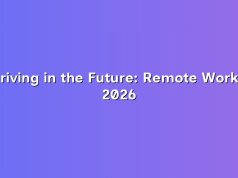In August 2024, the academic community was jolted by a controversial incident at the University of Minnesota. Graduate student Haishan Yang, pursuing his second Ph.D. in Health Services Research, Policy, and Administration, was accused of using artificial intelligence (AI) to cheat on a critical exam. Despite his denial, Yang faced expulsion and has since initiated legal action against the university. This case underscores the pressing need for educational institutions to adapt to the burgeoning presence of AI in academia.
AI technology is rapidly transforming the way we learn, teach, and assess knowledge. The challenge for educational institutions is not just to detect AI usage but to understand how it can be integrated ethically and effectively into learning environments. Instead of treating AI as a threat, educators and policymakers must evolve assessment methods, learning strategies, and ethical frameworks to ensure that students are prepared for an AI-driven future.
The Incident: A Brief Overview
While on a trip in Morocco, Yang undertook an eight-hour preliminary exam remotely, answering three essay questions. The exam guidelines permitted the use of notes, reports, and textbooks but explicitly prohibited AI tools. Upon submission, Yang believed he had performed excellently. However, weeks later, he was informed of his failure and the allegation of AI-assisted cheating. The university’s professors contended that his responses bore significant similarities to outputs generated by AI programs like ChatGPT, leading to his expulsion. Yang disputes these claims and is challenging the university’s decision in court. (kare11.com)
This case raises important questions about academic integrity, AI usage, and how educational institutions can adapt to the AI era.
The Dilemma of AI in Academia
This incident brings to light the complex challenges educational institutions face in the AI era:
Academic Integrity vs. Technological Advancement
As AI tools become increasingly sophisticated, distinguishing between human and AI-generated content becomes more challenging. This raises questions about the authenticity of student work and the methods used to evaluate it. How can universities ensure fair assessments while acknowledging AI’s potential as a learning aid?
Policy Development and Enforcement
The rapid evolution of AI necessitates the continuous updating of academic policies. Institutions must clearly define the acceptable use of AI and ensure that both faculty and students are aware of these guidelines. Policies must be well-communicated and adaptable as AI capabilities expand.
Educational Equity
Access to AI tools varies among students. While some may leverage AI to enhance their learning, others may lack the resources, potentially widening the educational divide. Universities must ensure that AI is used to support rather than disadvantage students, particularly those from underprivileged backgrounds.
Adapting to the AI Era: Strategies for Educational Institutions
To navigate the integration of AI in academia effectively, institutions might consider the following approaches:
Integrating AI Literacy into Curricula
Educators can incorporate AI education into their programs, ensuring that students understand both the potential and limitations of these tools. This knowledge empowers students to use AI responsibly and ethically. AI literacy should become a fundamental skill, much like digital literacy.
Redefining Assessment Methods
Traditional testing methods may need to evolve. Emphasizing open-book assessments, project-based learning, and oral examinations can reduce the temptation to misuse AI and better evaluate a student’s comprehension and critical thinking skills. Assignments that require personalized responses, creativity, and in-depth analysis are less likely to be AI-generated.
Developing Robust AI Usage Policies
Clear guidelines regarding AI use should be established, outlining what constitutes acceptable assistance versus academic dishonesty. Regular workshops and seminars can help reinforce these policies and ensure that students and faculty are on the same page.
Leveraging AI for Personalized Learning
AI can be harnessed to tailor educational experiences, addressing individual student needs and promoting a more inclusive learning environment. Adaptive learning platforms powered by AI can provide real-time feedback, helping students master concepts at their own pace. (weforum.org)
Future Prospects: Embracing AI Responsibly
The integration of AI into education is not a fleeting trend but a transformative shift. Institutions that proactively adapt will be better positioned to enhance learning outcomes and uphold academic integrity. Collaborative efforts between educators, policymakers, and technologists are essential to develop frameworks that balance innovation with ethical considerations.
The Role of Educators in AI Adaptation
Educators must take an active role in shaping how AI is used in classrooms. Rather than policing AI use, they can teach students how to use AI responsibly, just as calculators were eventually integrated into math education. AI tools can assist in grading, provide real-time student feedback, and even generate personalized learning materials.
Rethinking the Purpose of Education
The rise of AI forces us to reconsider what we value in education. Is the goal to memorize and regurgitate information, or to develop critical thinking, creativity, and problem-solving skills? AI can automate many knowledge-based tasks, but human ingenuity and ethical reasoning remain irreplaceable. Education should focus on skills that AI cannot easily replicate.
AI and the Global Education Landscape
As AI reshapes education, global collaboration will be crucial. Countries with different educational models must exchange best practices and work towards common ethical AI standards. Open-source AI tools and initiatives can ensure that students worldwide benefit from technological advancements, regardless of their economic backgrounds.
Conclusion: A Call for Adaptability
The University of Minnesota case serves as a pivotal example of the challenges and opportunities presented by AI in education. It highlights the urgent need for universities to develop clearer AI policies, rethink assessment strategies, and embrace AI as a tool for enhancing rather than undermining education.
Adapting to AI is not optional—it is a necessity. By fostering AI literacy, refining academic policies, and promoting a culture of responsible AI use, educational institutions can navigate this complex landscape. AI should not be feared or blindly banned; instead, it should be leveraged as an asset to prepare students for an increasingly AI-driven world.
The AI era does not mark the end of traditional education but rather the beginning of a more innovative, personalized, and forward-thinking academic system. Institutions that embrace adaptability will not only survive but thrive in this new landscape, ensuring that students are equipped for the future while maintaining academic integrity.




























